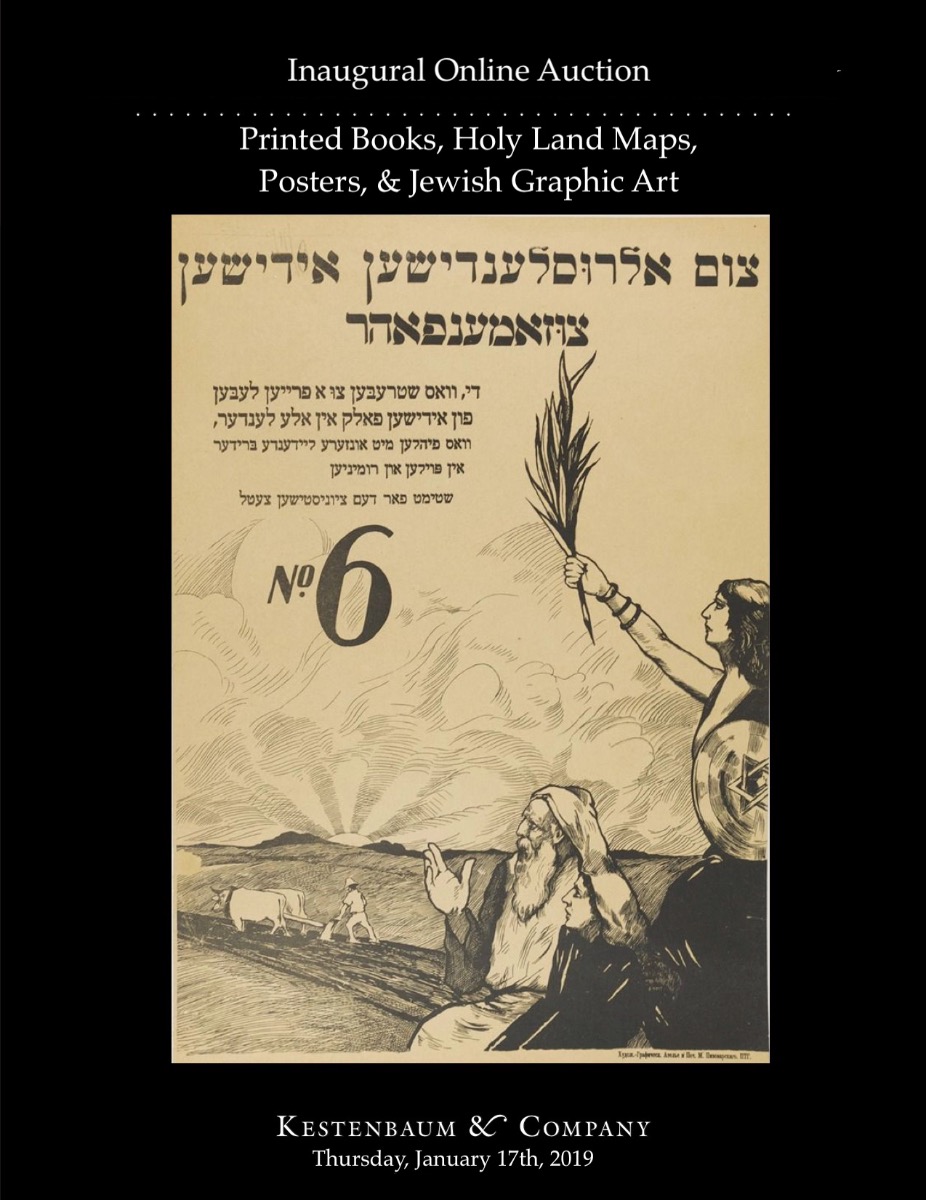Peri Poleon / De Urbibus ["Of Cities": Fragments of Stephanus' work of geography]. Translated from Greek into Latin and annotated by Thomas de Pinedo Lusitanus.

AUCTION 77 |
Thursday, January 17th,
2019 at 1:00 PM
"K2" Online Auction: Printed Books, Holy Land Maps, Posters, & Jewish Graphic Art
Lot 72
STEPHANUS (BYZANTINUS)
Peri Poleon / De Urbibus ["Of Cities": Fragments of Stephanus' work of geography]. Translated from Greek into Latin and annotated by Thomas de Pinedo Lusitanus.
Amsterdam: Jacobi de Jonge 1678
Est: $600 - $900
PRICE REALIZED $75
Stephen of Byzantium was a sixth-century grammarian of Constantinople (Byzantium). His geographic dictionary, Ethnica, contains a wealth of topographical, historical, mythological and religious information concerning Ancient Greece. Unfortunately, the work survives in only fragmentary form. From the surviving fragments we see that the work abounded in quotations from the Greek authors Herodotus, Thucydides, Xenophon, Strabo, et al.
The translator, Thomas de Pinedo (1614-79) was born in Trancoso, province of Beira, Portugal (thus the sobriquet "Lusitanus"). His father's surname was Pinheiro, his mother's Fonseca. Though raised by Jesuits in Madrid, Thomas was persecuted by the Inquisition's tribunal, forcing him to flee to Amsterdam. His commentary to the fragmentary work of Stephanus won for him renown as a philologist.
See Kayserling, Biblioteca Española-Portugueza-Judaica, p. 90.
